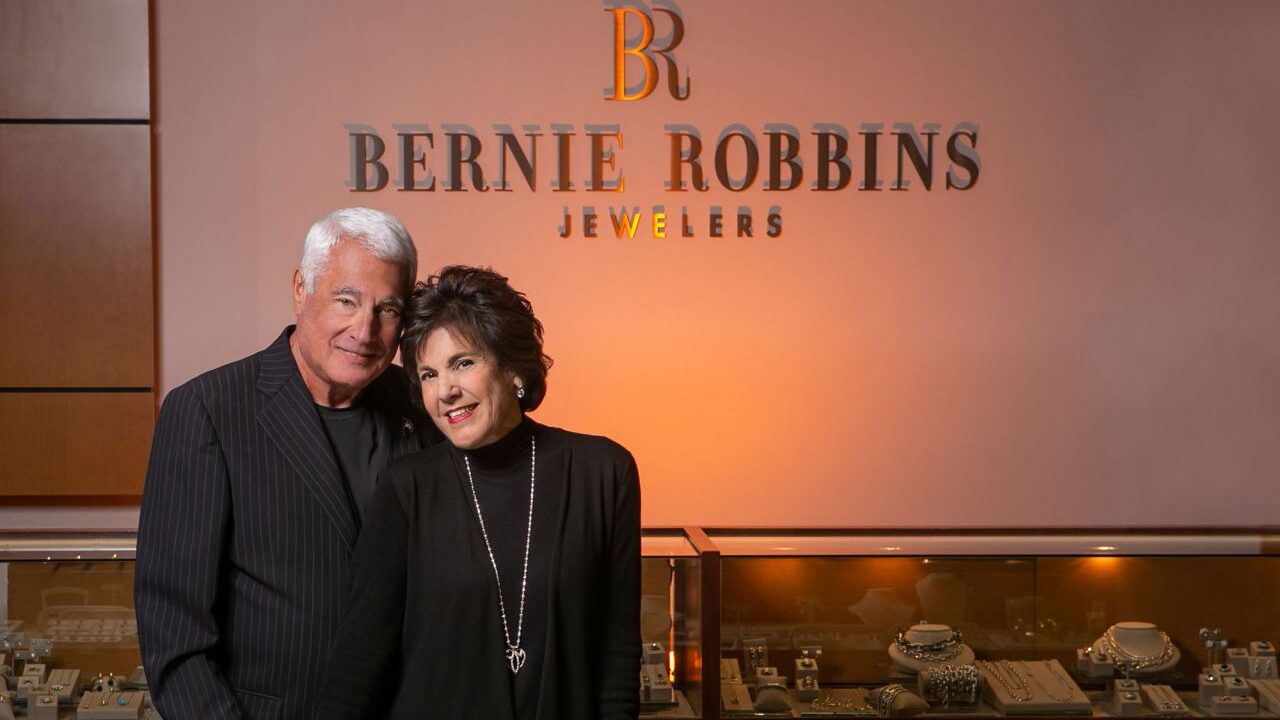Jewelry retail in the US has been declining steadily for more than 20 years, and 2023 was no different. The number of jewelry retailers fell by 2.8% to 17,554 last year, according to the Jewelers Board of Trade (JBT).
Fox’s Seattle, a business with a 112-year-old history, will be part of the statistic in 2024. Owner Zoey Mann is closing the business in downtown Seattle, Washington, because she wants to spend more time with her family, she said. However, she cites changes in the way people buy jewelry and the slowdown in walk-in traffic in the city’s business district since the Covid-19 pandemic as additional factors.
“I have been prioritizing work over family for the past 20 years, and now I’m ready to put my family first,” explained Mann, whose family purchased the store in 1948.
Her children are too young to enter the business, but they have no interest in taking it over anyway, she said.
“My 15-year-old comes with me to work, and she has fun talking to clients and doing odd jobs, but it’s not really her thing. I didn’t want to burden my kids with taking over the legacy,” she said. “Retail is so difficult. You never spend holidays with family. I never get a day off on my birthday.”
Mann, who represents the third generation of ownership, tried to sell the business before she revealed the closing in February, but it didn’t work out. “Once it was announced we were closing we had more interest, but it wasn’t the right opportunity.”
Bill Boyajian, a jewelry industry consultant who often works on succession planning with retailers, pointed to several reasons why jewelry companies close. The long hours, the changing retail landscape and retirement are among them. Another major reason they go out of business is because they don’t make enough sales for either a family member or a buyer to take over. A jewelry retailer needs to gross at least $1 million even to have a chance of being a viable option for succession or buyout, he said. But a business should be making at least $2 million a year.
“A $2 million business isn’t twice as good as a $1 million business. It’s four times as good. A $2 million business store is a nice business that can grow.” Boyajian estimates that about 12% of all independent jewelers earn at least $2 million per year.
Not buying it
Kyle Bullock, 31, is the fourth-generation owner of Bullock Jewelry in Roswell, New Mexico. He also consults independent jewelers on how to grow their business.
Bullock believes the aging of the jewelry industry is the main reason why stores are closing. According to Instore, more than half of jewelry store owners are at least 60 years old and fewer than 10% are in their 30s, he said, “making my generation a rare sight to see these days.”
“The biggest reason why stores are closing [is that] people are ready to retire. If you’re 60 years old, do you really want to see yourself working full time with all the stress of business ownership for the next 10 or 20 years? Most would rather not, and there’s nothing wrong with that,” he observed in an email interview. “The numbers just underscore an even bigger problem in the industry. We don’t have enough new leaders in the wings to keep another generation of independent stores going.”
Both Boyajian and Bullock say that the capital investment required to take over a business and a business’s ability to turn a profit are roadblocks for the next generation, which lacks the credit standing to get a bank loan. However, the biggest barrier for younger people entering the business is quality of life, Bullock added.
“The next generation values something more than money. They value time, too,” he said. “Why would someone want to buy a company that demands 50 to 60 hours of their life each week, depletes their family life, robs them of friendships outside of work, and locks them behind four walls every day? If the next generation can’t craft their business with their own set of values and ideas, including flexibility, then why be ‘The Man’ when working for ‘The Man’ is a lot less stressful?”
Boyajian agreed. “A lot of kids watch their parents work six or seven days a week and see how difficult jewelry retail is. They make up their minds early on to go to another profession. Young people today want life balance. They don’t want to put up with the hours,” he said.
Achieving succession
Duke’s Jewelers of Springville, Utah, made the transition to the next generation successfully when Richard Holmes handed over the reins to his daughter, Kimberly Ngarupe, at the beginning of year. This followed a retirement sale in December. She is now a fourth-generation owner of the business, although it wasn’t what she expected to be doing.
“It was not the plan for me until last year,” she shared. “What really made me change my mind was the love of my family, and the love I have for the community. It wasn’t something that I was willing to let go of.”
She worked at Duke’s as a teenager before going to the University of Utah where she earned a bachelor’s degree in English. She worked in retail and customer care in Los Angeles and later in Utah. After the birth of her second daughter, she transitioned into the role of a stay-at-home mom. She now has three children.
Taking over the family legacy was never forced on her by her parents. “My father wanted us to make our own decisions,” she said.
She started working in the store in September, helping with the transition and becoming reacquainted with the customers. Now she has full control as well as the benefit of having her father provide advice when needed. She doesn’t regret her decision.
“I’m so happy to be back. It’s been so much fun being here,” she said. “I’m excited for the challenges, the growth and the chance to put my own spin on what was crafted by my dad and my late great-grandpa.”
A tribute to teamwork
Harvey and Maddy Rovinsky, the former owners of Bernie Robbins Jewelers in the Philadelphia, Pennsylvania, metro area, found a creative way to handle succession. Their daughter, who’s a psychologist, and their son-in-law, who has a real estate business, didn’t want to take over. The Rovinskys were looking at buyers for the three-store operation when they came up with the idea of gifting the business to its management team of five employees.
“My daughter and son-in-law were not interested in the business and are doing other things,” said Harvey Rovinsky, who recently turned 77. “There were potential buyers who were interested in the business that were not up to our standards. I had to continue the legacy that my wife and I had built. We have five terrific people who worked with us for 20 and 30 years. I said, ‘What’s wrong with me? These are the right people to be stewards of our company.’”
In another stroke of genius, the couple held a retirement sale that raised enough money to hand the store to their employees, debt free.
“We did a year’s worth of business in two months that allowed us to retire the debt,” he said.
Harvey Rovinsky, a third-generation jeweler, began working at Bernie Robbins 58 years ago when it was transitioning from an appliance store to a jewelry business. Maddy was the owner’s daughter. The two married and took over the company in 1992, moving it from a standard retail jeweler to a luxury jeweler. At one time, they operated 10 stores until the 2008 recession when they nearly lost everything. It’s one reason he says owning a jewelry store isn’t for everyone.
“I love the business,” he admitted. “I can’t think of anything I want to do more. But not everybody has that passion and feels this way. We’ve been through many [business] cycles. Not everybody wants that anymore.”
There are other challenges. Luxury watch brands have become much more demanding, forcing jewelers into making additional investments in their showrooms, buying more of their product, and increasing their display space.
“We had a Rolex business for 30 years. They decided they wanted things from us we were not prepared to do. So, my answer to them was goodbye. We’ve had jewelry brands in our stores for 30 years, and they are fabulous relationships. Unlike the watch brands, which are more challenging.”
Boyajian is bullish about the future of retail jewelers, he said. He was confident the good jewelry businesses would make the changes needed to be successful, including a proper plan of succession.
“The future of independent jewelers will be fine if they are well-capitalized and have a succession plan in place.”
Or as Harvey Rovinsky put it, “It’s a big adjustment, but if you do it right it can be a good thing.”
RELATED READING
Time to Tackle the Diamond Industry’s Pre-Pandemic Challenges

Main image: Harvey and Maddy Rovinsky in front of a Bernie Robbins store. (Bernie Robbins)
Stay up to date by signing up for our diamond and jewelry industry news and analysis.



